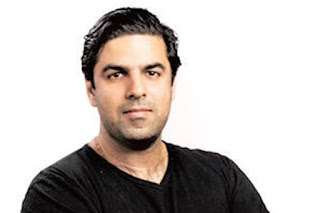 Conventional thinking says that one needs to know coding or be an engineer to create an application. Engineer.ai proves it otherwise, getting Artificial Intelligence (AI) to do the job, or at least most of it. Says Sachin Dev Duggal, CEO and founder of Engineer.ai, “I am an engineer and many like me don’t want to do repetitive codes like Facebook login. We have to utilise engineers to do the important things—like the logic and flow of an application and actually thinking through a customer’s problem,” he explains.
Conventional thinking says that one needs to know coding or be an engineer to create an application. Engineer.ai proves it otherwise, getting Artificial Intelligence (AI) to do the job, or at least most of it. Says Sachin Dev Duggal, CEO and founder of Engineer.ai, “I am an engineer and many like me don’t want to do repetitive codes like Facebook login. We have to utilise engineers to do the important things—like the logic and flow of an application and actually thinking through a customer’s problem,” he explains.Engineer.ai treats app creation as an assembly line production process. When an app needs to be designed, the majority of it is done in the first couple of hours by the AI on his platform. And then, software engineers (from a workforce of 26,000) work on the little parts remaining to complete the app (like how technicians fix a car’s chassis, engine and wheels in a car assembly line), thereby leaving the repetitive work to AI and focusing on the creative parts that actually need human attention. The AI in Engineer.ai platform, called the Builder, draws from a library of ‘Components’ to build the repetitive blocks which have already been built before.
“Some 60% of software is ‘Components’ which need not be done again. This could be Facebook login or integration with an analytics provider,” says Sachin Duggal. The rest 40% is business logic and design. To do this, Engineer.ai partners with a number of software companies from whom developers are brought on board, depending on the complexity and features of the project/apps that need to be delivered. The developers’ time do not overlap with their original employers.
Read full story @ https://www.financialexpress.com/industry/technology/an-ai-assembly-line-for-apps/1638580/
Comments
Post a Comment